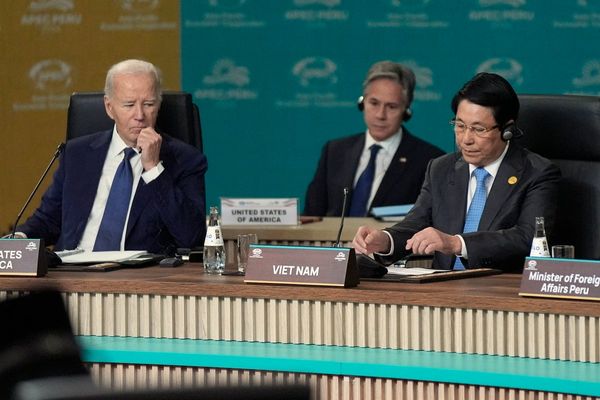
If Congress can’t come up with a way to fund the government by the Sept. 30 deadline, it could well shut down.
And Goldman Sachs analysts see a good chance for that outcome. “The government looks more likely than not to temporarily shut down later this year,” they wrote in a commentary.
“This has looked fairly likely since the debt limit deal, in light of the thin House majority and a lack of consensus on spending levels.” Congress agreed to raise the debt limit in June. At the beginning of the year, Republicans had a 222-212 advantage over Democrats in the House.
“Issues, like aid for Ukraine, funding for Justice Department investigations, or border security could hinder progress,” the analysts said.
“And the spotlight that the recent sovereign downgrade shines on the fiscal situation adds to the risks.” Last month, Fitch Ratings lowered its rating on government credit to double A-plus from triple A.
Shutdown Isn’t a Slam Dunk
“That said, a shutdown isn’t a foregone conclusion, and the timing is uncertain,” Goldman said. “Leaders of both chambers support a temporary extension after the end of the fiscal year on Sept. 30. And the emergency funding requests raise the odds that Congress passes at least one extension before any shutdown.”
Meanwhile, “unlike the debt limit, … a shutdown would be much more manageable from a macroeconomic perspective,” the analysts said. “However, the less severe economic effect of a shutdown also makes it more likely that Congress fails to act in time.”
A shutdown, including private sector effects, could trim 20 basis points off GDP for each week it lasted, Goldman said. In the quarter following reopening, growth would rise by the same amount.
Little Impact on Financial Markets
Prior shutdowns haven’t affected financial markets much, the analysts noted. “At the end of the three prolonged shutdowns in the past (1995-96, 2013, and 2018-19), equity markets finished flat or up,” they said.
To be sure, “in each instance, equity prices were lower at some point in the days following the start of the shutdown than when it began,” Goldman said. Looking at bonds, the 10-year Treasury yield declined more consistently following the start of prior extended shutdowns.
As for the Federal Reserve, “assuming modest economic and market effects, a shutdown should have little effect on monetary policy,” the analysts said.
But, “a prolonged shutdown starting in October would add to the arguments in favor of staying on hold at the November meeting,” they said. “A shutdown would also probably delay economic data releases, reducing visibility into the state of the economy.”







